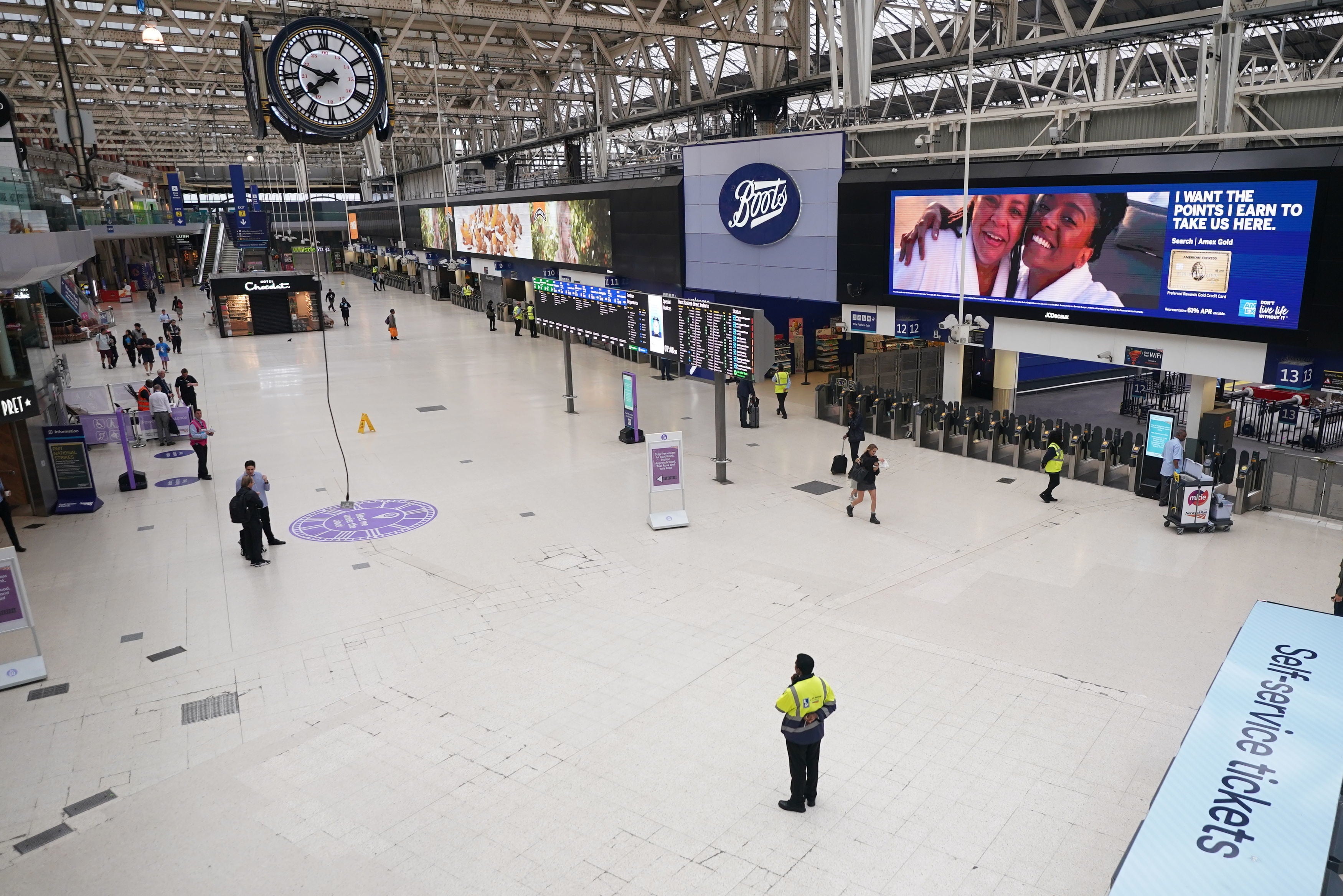Hybrid working continues to hamper railways’ post-Covid recovery
Train Talk: Overall revenue is still about £5bn short of the £11bn collected from fares pre-pandemic

Commuting can be fun. Just ask the lucky staff shuttling by seaplane between Vancouver Harbour and Victoria BC, the provincial capital. Or, on the other side of North America, those in the fortunate position of taking New York’s Roosevelt Island Tramway – actually a cable car, and “the most modern aerial tramway in the world” – shuttling from the island in the East River across to 59th Street and Second Avenue in Manhattan.
But mostly commuting really isn’t much fun at all. Which is why the acceleration of hybrid working that has flowed from the otherwise tragic coronavirus pandemic is rightly celebrated by millions. The 7.47 from Basingstoke (a train from the Hampshire town at 13 minutes to 8, not a Jumbo jet) to London Waterloo is much emptier than it used to be.
Qualities of life have improved markedly for those fortunate enough to spend at least part of the week working from home. Net incomes, too, have been boosted. But the corollary, of course, is that the bedrock of financing the railways has been removed. Around £2.2bn of fare revenue each year on Britain’s rail network before Covid was from season tickets bought unwillingly by commuters who knew they were a captive market.
That income has collapsed by 75 per cent. Naturally, some of the £1.65bn finds its way back into the railway industry – with commuters buying day tickets rather than weekly, monthly or annual seasons. But according to the latest figures from the Office of Rail and Road last month, overall revenue is still about £5bn short of the £11bn collected from fares before the pandemic.
The taxpayer is currently making up the difference – as she or he did at a rate of £1m per hour during the depths of the crisis. The ghost trains carrying just a handful of passengers became one of the emblems of the coronavirus pandemic in the UK – with railwaymen and women in the frontline, keeping the system running for essential workers.
They deserve credit. They also deserve a pay rise – especially since inflation is nibbling into everyone’s wages at an alarming pace. The question is: how much, and what will happen if they don’t get it?
How much? “An offer on pay which helps deal with the cost-of-living crisis, job security for our members and provides good conditions at work,” says Mick Lynch, general secretary of the RMT union.
“Recent proposals from Network Rail fell well short on pay and on safety around maintenance work,” he says. “And the train operating companies have not even made us a pay offer in recent negotiations.”
Mr Lynch was announcing two more days of strikes, on 18 and 20 August, in addition to next Wednesday’s action on 27 July. Half the rail network will be shut down, and on the portion remaining open far fewer trains will run. The effect will continue into the following day.
Crucially, the August strike shows that the RMT is now aiming at exactly the market that the railway desperately needs to rebuild its finances: not so much commuters, but discretionary travellers making mainly leisure journeys. With walk-outs on Thursday and Saturday, the third weekend in August is not going to be a good time to travel by rail.
“We will continue our campaign until we reach a negotiated settlement,” says Mr Lynch.
“Anyone who truly believes that there can be a pay offer that meets or exceeds the highest levels of inflation for a generation, is not being realistic,” counters Andrew Haines, chief executive of Network Rail, in a message to staff.
I sympathise with the union members – but I fear they may be mistaking the fact that not a single rail worker lost their job during Covid as proof that they are fully indispensable. A great railway confers huge benefits on the nation. But I predict the next prime minister will not hesitate to shrink the sector as the cuts begin. For everyone’s sake – especially the passenger, stuck in the middle – a settlement is desperately needed.
Join our commenting forum
Join thought-provoking conversations, follow other Independent readers and see their replies
Comments
Bookmark popover
Removed from bookmarks